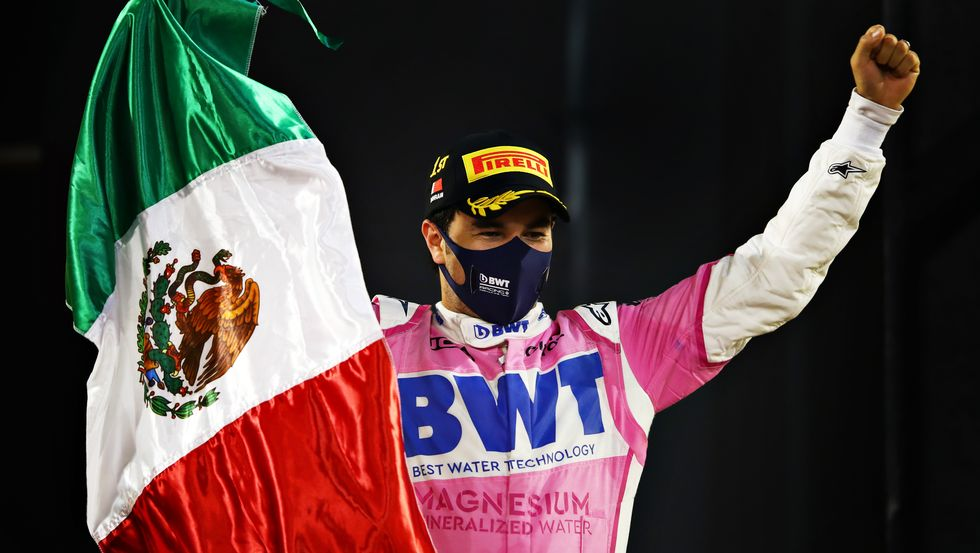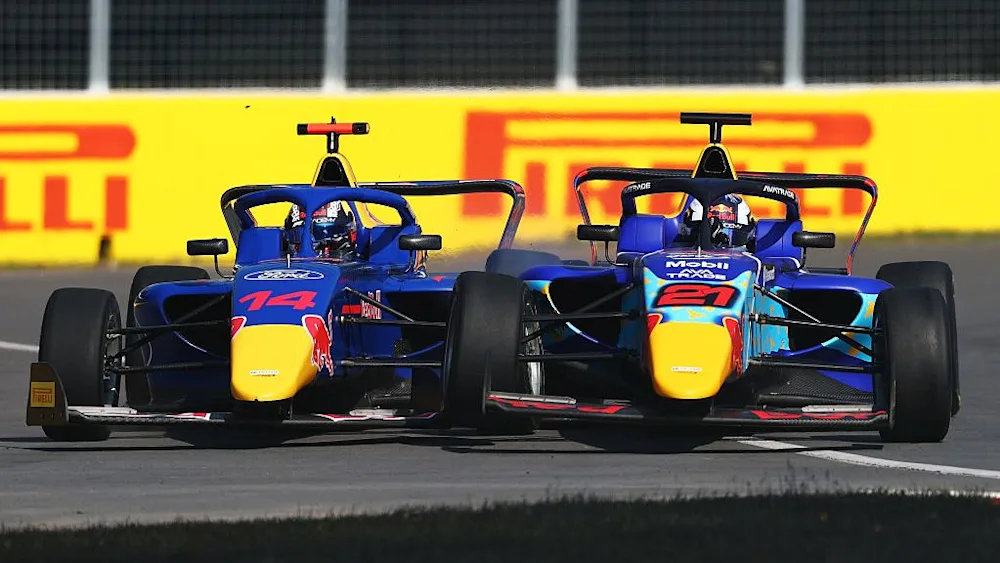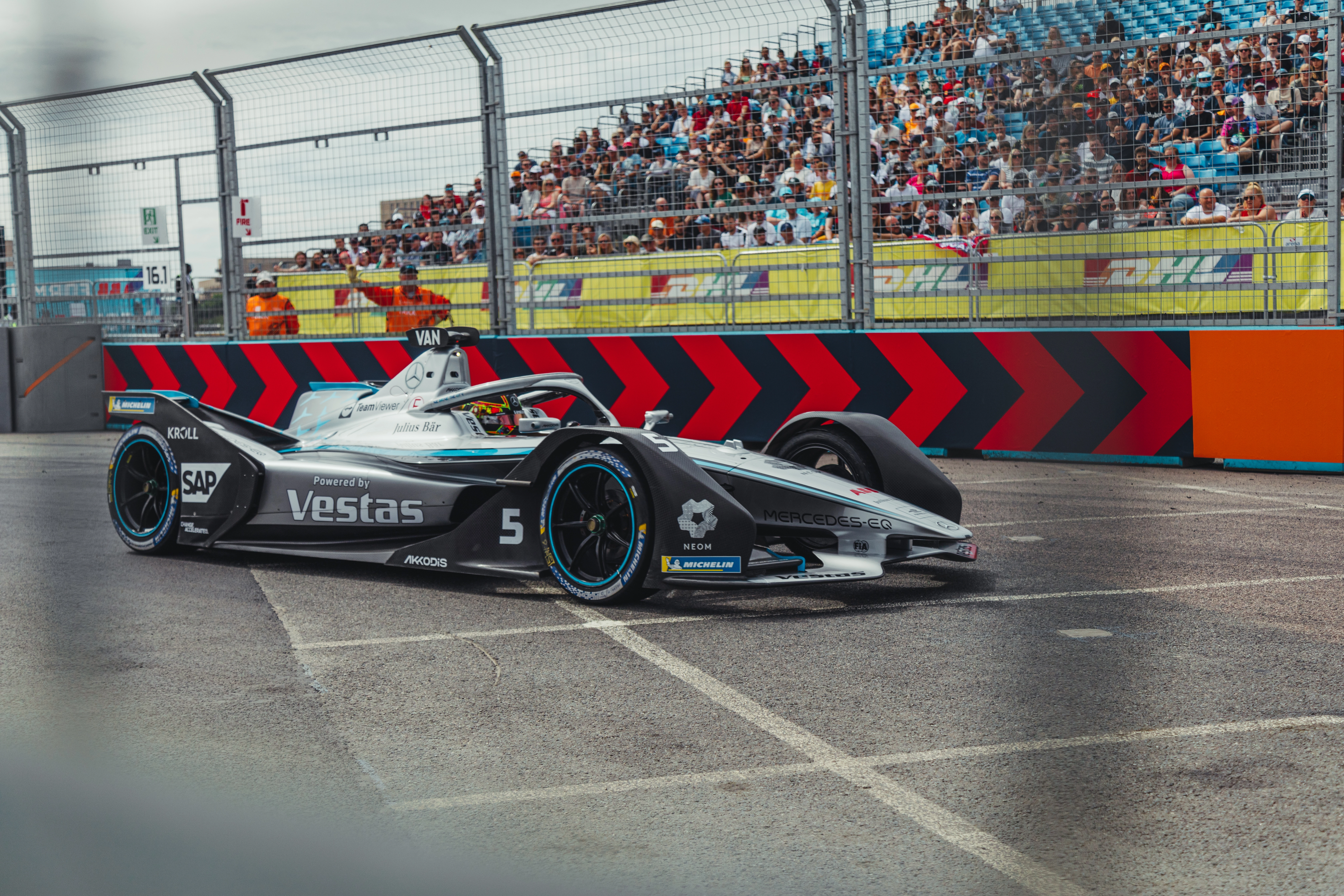OPINION: F1 Driver Development Programmes - Red Bull suffering from success?
- Daniel Yi
- Sep 1, 2021
- 9 min read
Updated: Jan 3, 2025
Written by: Daniel Yi, Edited by: Andrea Teo
Disclaimer: The views and opinions presented in this article are purely the author’s and do not represent the opinions and beliefs of Divebomb or its affiliates.

Gentlemen, a short view back to the past. Twenty years ago, Helmut Marko told us, “Take a promising young driver, place him into the Red Bull Junior Team, and he is able to drive in Formula 1.” Twenty years later, everyone else is saying, “Take a promising young driver, place him into the Red Bull Junior Team, and his F1 dream will be ruined.” Question for the readers: How successful is the Red Bull Junior Team? Does it ruin the promising F1 careers of racing hopefuls? What are your wishes for the future concerning the drivers in the Red Bull programme? Should they stay on or leave? Will the dropped drivers have another chance? Or are they really not that good after all?
-Fake Quotes, 2021
Okay, so the above section was a fabricated joke. But it still raises a few valid questions about the Red Bull Junior Team. What happened to the promising former members of the Red Bull Junior Team? Is the Red Bull Junior Team really successful in generating talented drivers for F1? Why did Red Bull, a team that has always prided itself on using “home-grown academy talent” from their junior team, suddenly sign an “outsider” in Sergio Perez this season?
Let us explore these three questions about the Red Bull Junior team today. Before we get into that however, a brief introduction and history of the Red Bull Junior Team.
There were actually two Red Bull Junior Teams. Back in 1989, Dr. Helmut Marko set up and ran a racing team, RSM Marko, which focused on competing in Formula 3 and Formula 3000 (now FIA Formula 2). RSM Marko then came under Red Bull sponsorship and ran under the name Red Bull Junior Team from 1999 until its end in 2003.
The junior team that we know now first had its beginnings in 2001, when Red Bull formed the team as its European driver programme. Talented racers receive support and funding from Red Bull as they progress through lower ranks of motorsport.
Where are the former members of the Red Bull Junior Team now?
With a whopping 85 total number of (both previous and current) members of the Red Bull Junior Team, it is impossible to focus on every single driver, therefore we will only be focusing on former members who have made it to F1 (either as driver, test or reserve).
*add numbers to the table
Driver Years as Red Bull Junior
Enrique Bernoldi: 1999-2000 as Red Bull Junior Team (RSM Marko)
Retired in 2016 after racing in GT, Stock Car Brasil
Robert Doornbos: 2004
Raced in Superleague Formula, IndyCar and A1GP
Last raced in 2020 Dutch Winter Endurance Series
Co-founded an adult toy production company
Currently with Ziggo Sport as an analyst
Patrick Friesacher: 2001-03
Raced in A1GP and American Le Mans
Currently an instructor at the Red Bull Ring
Narain Karthikeyan: 2004
Raced in Super Formula with appearances in Auto GP and Super GT
Last raced in 2021 Asian Le Mans Series
Christian Klien: 2001-03
Raced in GT and Endurance racing
Currently racing in 2021 International GT Open Pro-Am Cup
Vitantonio Liuzzi: 2002-04
Raced in GT, WEC, Super Formula, Formula E and Esports
Last raced in 2020 The Race Legends Trophy
Sebastian Vettel: 2002-07
Moved to Scuderia Ferrari from 2015 onwards
Currently with Aston Martin F1
Scott Speed: 2003-05
Returned to US after Toro Rosso stint and raced in NASCAR, IndyCar and Rallycross
Made appearances in Formula E
Neel Jani: 2005-07
Raced in A1GP and sportscars (GT and WEC)
Last raced in Formula E in 2019-2020 season
Michael Ammermüller: 2004-07
Raced in A1GP, GT, and Porsche racing series
Won Porsche Supercup from 2017-2019
Last raced in ADAC GT Masters (1st place)
Brendon Hartley: 2006-10
Raced in WEC, winning in 2015, 2017
Le Mans 24H winner: 2017, 2020
Currently racing in WEC with Toyota
Sébastien Buemi: 2005-08
Racing in Formula E (2014-present), WEC (2012-present)
2015-16 Formula E Champion
24H of Le Mans winner: 2014, 2018, 2019, 2020
Jaime Alguersuari: 2006-09
Last raced in Formula E in 2014-15
Retired to become a DJ
Debut album topped iTunes album five days after release
Daniel Ricciardo: 2008-11
Moved to Renault F1 in 2019
Currently racing with McLaren F1
Jean-Éric Vergne: 2008-11
Racing in Formula E (2014-present)
2-time Formula E Champion (2018, 2019)
Daniil Kvyat: 2010-13
AlphaTauri contract not renewed for 2021
Current Alpine reserve driver
Carlos Sainz Jr.: 2010-14
Moved to Renault F1 in 2017
Currently racing with Scuderia Ferrari
Max Verstappen: 2014
Toro Rosso/AlphaTauri (2015-16)
Red Bull (2016-present)
Pierre Gasly: 2014-17
Toro Rosso/AlphaTauri (2017-18, 2019-present)
Red Bull (2019)
Alexander Albon: 2012
Red Bull contract not renewed for 2021
Current Red Bull test/reserve driver
Racing in DTM
Yuki Tsunoda: 2019-20
AlphaTauri (2021-present)
Dan Ticktum: 2017-19
Recently dropped as Williams Academy and development driver
Callum Ilott: 2015
Current Ferrari/Alfa Romeo test/reserve driver
Is the Red Bull Junior Team really successful in generating talented drivers to F1?
Many fans consider the Red Bull Junior Team to be a successful programme. But by just looking at the list above, only twenty-two out of 85 Red Bull Juniors have made their way to Formula 1. Statistically speaking, it means for every 4 Red Bull Juniors, only about one will make it to Formula 1, which isn’t exactly a strong association with success. So why is the Red Bull Junior Team still widely considered to be successful?

In terms of achievements, it has been successful. In their early years of the programme, you would get laughed at if you thought the programme was a success. Before 2007, none of the drivers had any significant results in F1, until the arrival of Sebastian Vettel in the 2007 season, which saw a change in the perception of the programme. Sebastian Vettel went on to dominate from the later half of 2009 until 2013, winning 4 world championships. Then came Daniel Ricciardo, who won multiple races and contended for the championship for a couple of seasons, and the generational talent Max Verstappen who won his debut race with Red Bull and has the chance to end Mercedes’ dominance and dethrone Lewis Hamilton in 2021. These 3 drivers are considered to be Red Bull’s most successful protégés and between them, they have a combined 75 wins, 68 pole positions, 67 fastest laps, 203 podiums and 5606 points.
In terms of driver quality they have been very good as well. In the mid-2000s, Red Bull had not become the contendenting obsolete word what to replace? force it is today, and Toro Rosso was a perennial backmarker instead of contending in the midfield, which limited the achievements and impacts early Junior Team graduates could make. Nonetheless, out of these 22 drivers, almost half of these graduates have had some form of achievement in F1. 3 (Albon, Sainz, Kvyat) have been on the podium multiple times, 3 (Gasly, Ricciardo, Verstappen) have won races and multiple podiums, while Vettel was a 4-time World Champion.
Some of the drivers also have been successful in other racing series outside of F1. Brendon Hartley and Sebastien Buemi have won multiple Le Mans and WEC championships, Michael Ammermüller has won multiple Porsche Supercups, Buemi and Jean-Eric Vergne have been massively successful in Formula E. Currently, 6 out of the 20 drivers on the 2021 F1 grid were once part of the Red Bull Junior Team (Sainz, Ricciardo, Vettel, Verstappen, Gasly, Tsunoda).
Given the success and quality of the junior team, this brings us to the next question.
Why did Red Bull, a team that has always prided itself on using “home-grown academy talent” from their successful junior team, suddenly sign an “outsider” in Sergio Perez this season?

Because Red Bull had no good option for a second driver to help Verstapppen in the title fight.
In the entire team history of Red Bull, with the exception of David Coulthard (2005-08) and Mark Webber (2007-13) signed in the early years to provide a veteran presence, the drivers have all been Junior Team members. Red Bull, in a somewhat surprising move, decided to sign Sergio Perez for the 2021 season, and he became the first non-Red Bull affiliated driver in 7 seasons to race for them since Mark Webber.
This is the part where Red Bull and the junior team have failed, resulting in the signing of Perez. Since the promotion of Verstappen to Red Bull in 2016, some fans believed that Red Bull were favouring Verstappen over the more senior Ricciardo, believing that to be the reason behind the departure of Ricciardo after 2018. Since then, Red Bull has been unable to develop a suitable candidate to be the second driver alongside Verstappen, with every subsequent second driver performing below expectations, leading many to joke that the second seat was cursed.
Pierre Gasly, who had shown potential in Toro Rosso in 2018, moved to Red Bull the following season to partner Verstappen. As we all know, he endured a torrid time before being demoted back to Toro Rosso for Alex Albon who was barely halfway into his rookie season.

During the 2020 season, it was Albon’s turn to have an inconsistent season and underperform. Meanwhile, Sergio Perez, a highly experienced driver with good performances in 2020, was just dropped from Racing Point for 2021. Perez went on to win the Sakhir Grand Prix late in the season and when the time came to decide who to go with for 2021, it became a no-brainer.
This similar pattern of dropping drivers was also evident in Toro Rosso/AlphaTauri and the junior team. Drivers were ruthlessly dropped immediately after dissatisfactory performances or seasons. Callum Ilott, Albon and Hartley were dropped from the junior team after they had a winless season, while Toro Rosso drivers were dropped after 1-2 seasons even though they were in an inferior car which were perennial backmarkers.
Some say that the Red Bull Juniors, Gasly and Albon were simply not good enough and the situation was way over their heads, while some others felt they had the capabilities but failed to capitalise and rise up to the occasion. But the real reason could be Helmut Marko and Dietrich Mateschitz.
The impatience of Marko and Mateschitz
Marko and Mateschitz are known to be very impatient people. One is very efficient and the other is an excellent businessman. They want good results and they want it fast. As a businessman, Mateschitz wants returns on his investments. When an investment is not reaping the expected returns, losses should be cut and the investment let go or withdrawn. This mentality has been similarly applied to drivers in the junior team, AlphaTauri and Red Bull.
Having experienced the generationally talented likes of Vettel and Verstappen who were able to immediately put in excellent winning performances once inside an F1 car, Marko and Mateschitz seem to have heaped the same kind of expectations onto younger drivers. These drivers were simply not given enough time to develop, improve their racecraft and take up that second seat.
Helmut Marko’s pride
Let’s face it. No one likes to be wrong and Helmut Marko is probably no exception. When Marko chooses to drop someone, it’s quite unlikely that he will recall them back to the team. Daniil Kvyat has probably had the most chances for an F1 seat, given he had 3 stints at Toro Rosso and some time in Red Bull as well. After getting dropped for the third time, Kvyat ruled out a possible recall to AlphaTauri despite Tsunoda’s struggles. He remarked jokingly on F1 Nation podcast that “Pride might be in the way of giving him a call back” because it would be like “admitting it was a mistake” to drop him. This gives a possible insight as to why Red Bull promoted a rookie Albon in mid-2019 instead of the more experienced Kvyat who was performing better at that time. The decision made no sense as Kvyat’s previous stint in Red Bull actually yielded respectable results and he managed to snag Toro Rosso’s first podium since Vettel. Despite all this, it seemed like they did not want to try out Kvyat again. Likewise for Gasly, Marko has downplayed his achievements so far and has been extremely reluctant to recall Gasly back to Red Bull.
A different outcome?
As an Albon fan, it’s disappointing to not see him on the grid, but signing Sergio Perez was definitely the right move by Red Bull and so far this season, it has seemed to pay off. Nonetheless, we can consider how different things would have turned out if Red Bull handled things differently.
When given enough time to develop and improve, these drivers can show that they’re definitely capable of much more. 2 drivers which clearly have displayed that are Callum Ilott and Pierre Gasly. After Red Bull dropped Ilott, he went on to develop himself into one of the best young drivers, finishing second in F2 and definitely would have got a F1 seat were it not for Haas signing Mazepin instead. Gasly as we all know had his wonderful redemption arc after returning to Toro Rosso, regaining his confidence and driving the wheels off the AlphaTauri to record a couple of podiums and a historic first win at Monza.
For all we know, if Red Bull had given them more time to develop, Ilott could have become a solid option for Red Bull in the next few years and maybe we could have seen a confident Gasly partnering Verstappen for 2021 instead of Perez.
If Marko’s stubborn pride wasn’t such a stumbling block to recall previous drivers, then maybe Gasly could be recalled to Red Bull or Daniil Kvyat could recreate and improve his previous form in Red Bull and be a solid second driver and partner to Max Verstappen. (Although Kelly Piquet in the paddock might be really awkward for them now)
Let’s not forget about Alex Albon who showed great potential and promise in his rookie season. If they weren’t so impatient to promote him early and instead give him time to develop, maybe he could have become a good option as well, but we may never know now.












Comments